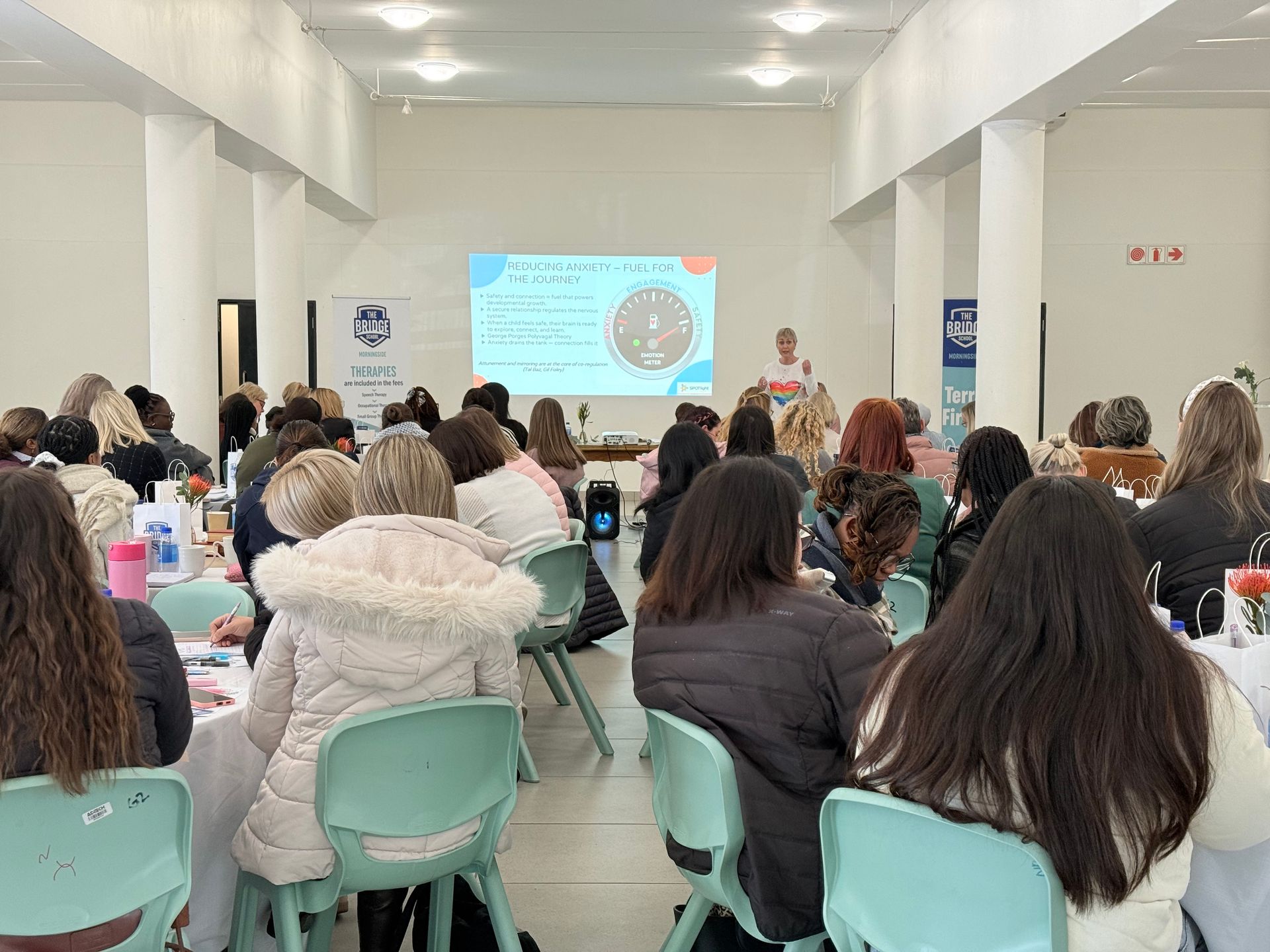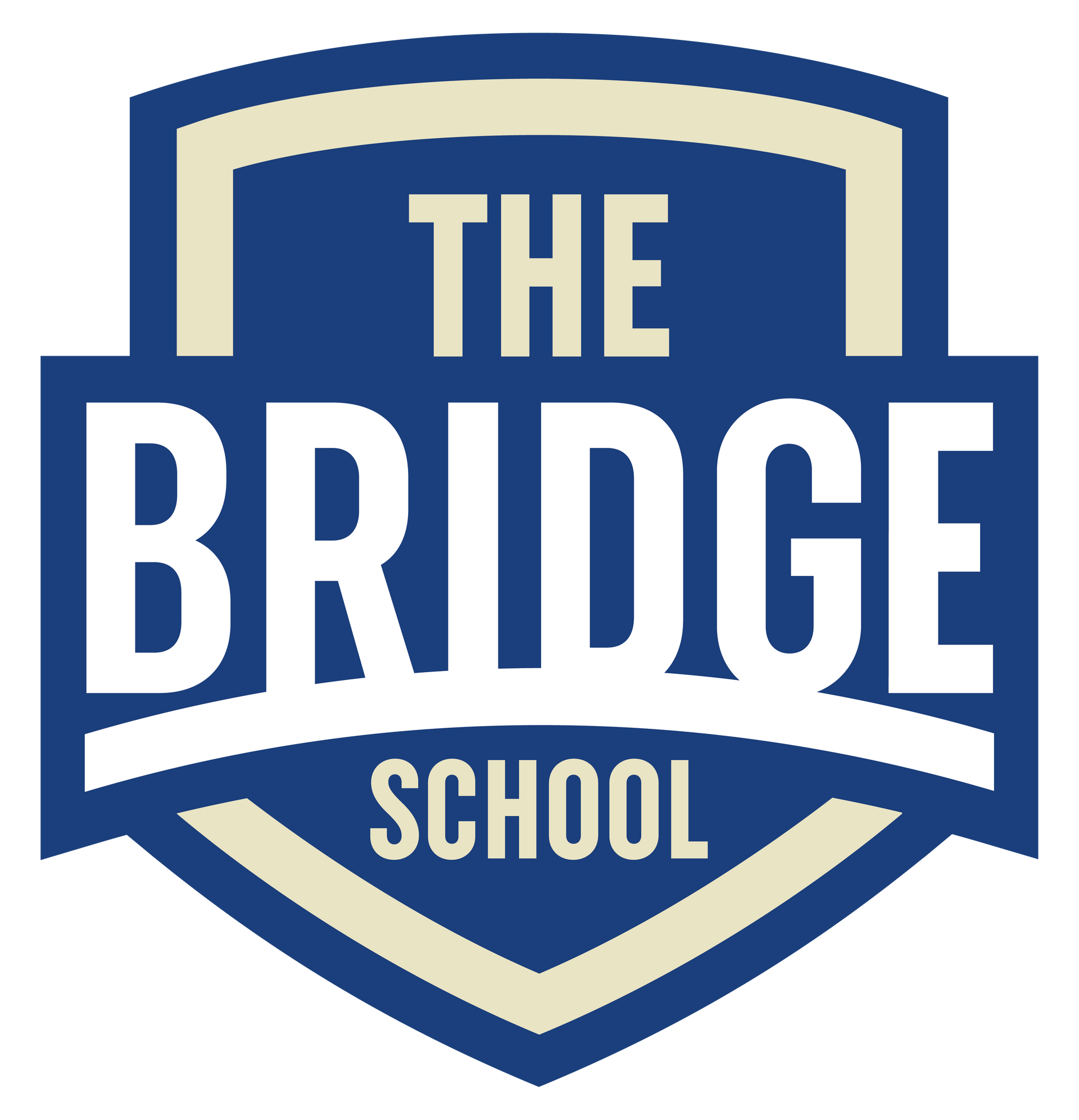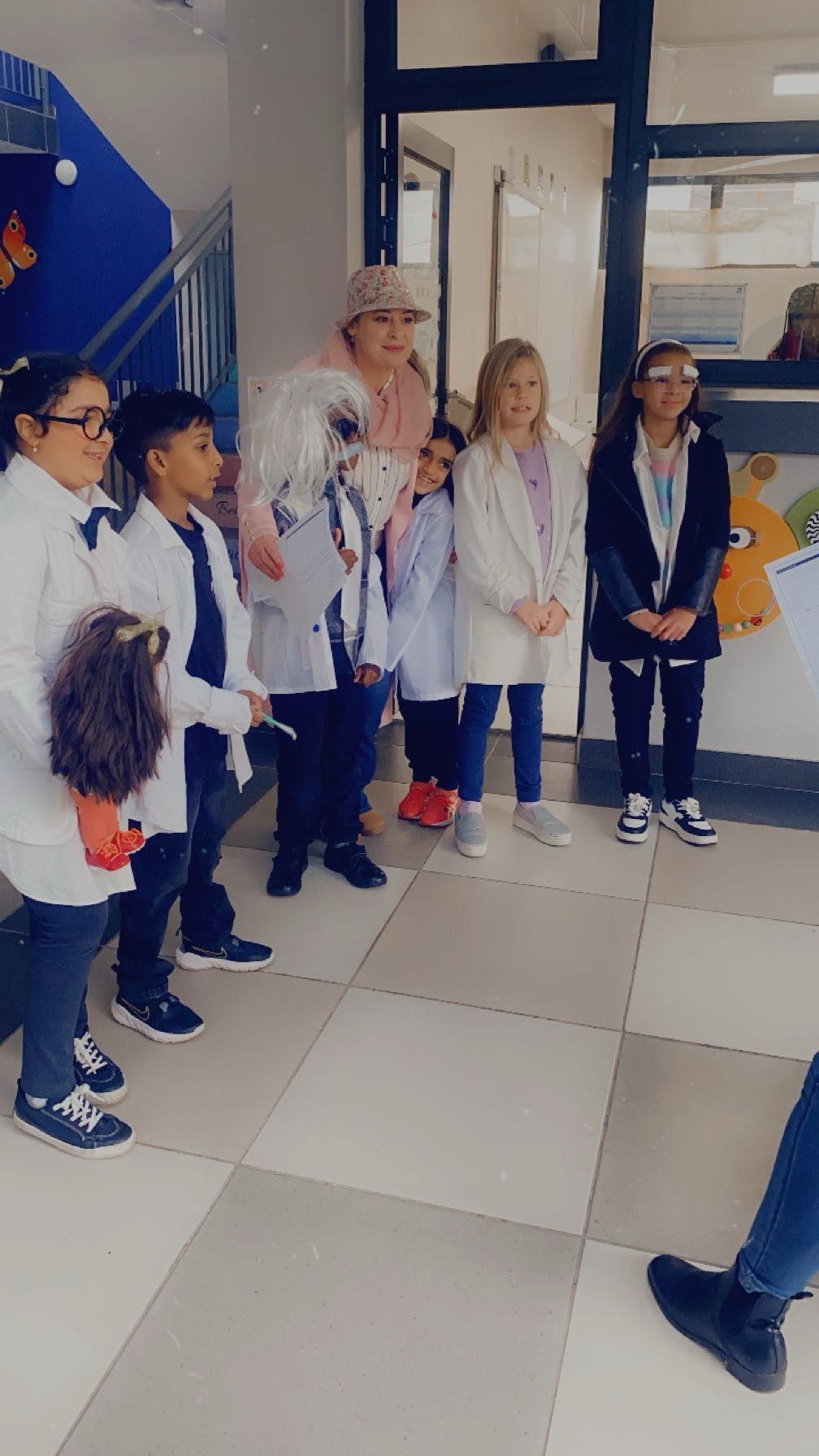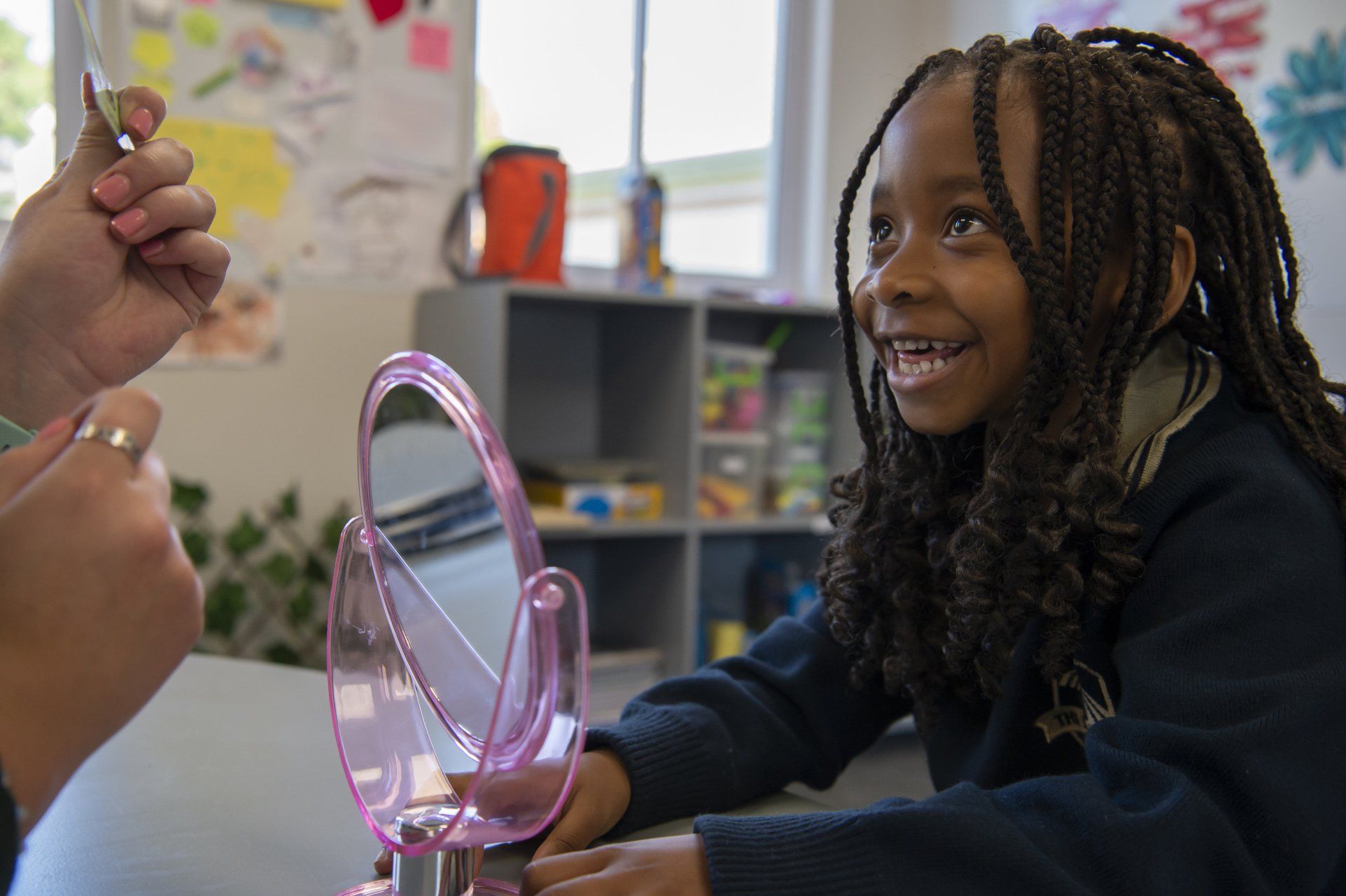Gestalt Language Processing
A growing area of interest in the speech therapy profession is Gestalt language processing. Gestalt language processors are children who learn language in a way that is different from analytical language learners. Rather than learning to make sounds, then words and then sentences like analytical language learners; these children learn whole phrases first.
“For those with a psychology background, the word Gestalt is familiar, but it essentially means learning from the whole to the part. Rather than learning the word done, a Gestalt language processor might say, well done, excellent job every time they complete a task, regardless of whether the job was completed fully or not,” explains Robyn Barlow, Speech Therapist at The Bridge Assisted Learning School, part of the ADvTECH Group, SA’s leading private education provider.
“It is a type of language development that usually presents with echolalia. Echolalia is a term for sentences or phrases that are repeated, which can either be delayed or immediate. These are the children that repeat your questions back to you or repeat a line from a TV show in a sing-song manner,” she says.
“It can be frustrating when your questions are constantly said back to you by a small person. And for many it may appear that the child is unaware of what is being asked, but research has shown that is not true. As communicative partners of these children it is important to encourage communication in any form.”
Some tips for parents and teachers communicating with Gestalt language processors include:
- Acknowledge the communication, this can be through a smile or a nod but the attempt to communicate must be acknowledged.
- Model language, they have made associations to these phrases that may be tricky to decipher. For example, the child may say, “that’s a big truck” every time they see a truck. As a caregiver, modelling various sentence structures, intonation patterns and modifying the sentence is a good way to stimulate language. For example, “Is that a big truck?” or “yes, a big RED truck.”
- But sometimes, the phrase can be attached to an emotion. Determining if an emotional response is attached to a phrase can help you and the child identify big feelings and better ways to manage them.
“While we do not know what causes children to be analytic or Gestalt processors, we do know that Gestalt language processors using echolalia is a valid form of communication. Many children who are Gestalt language processors are neurodivergent and it important to learn how you can support them through neuro-diverse affirming approaches,” Barlow says.
Renie Sutherland, Principal at The Bridge Assisted Learning School Morningside campus (sister school of The Bridge Lonehill), says as is the case with all neurodiverse children, parents should seek additional assistance if they feel unsure or concerned about their child’s development.
“Sometimes neurodiverse students can’t thrive in mainstream schools, but they may also not be suited for special needs schools. Nevertheless, children with average to above average ability, whose learning is impacted by challenges such as ADHD, dyslexia, mild autism, and anxiety, or children who have been through illness or trauma which has affected their scholastic progress, as well as children who display signs of Gestalt language processing, may find the necessary support from therapy or schools that cater to neurodiverse children.”
“Gestalt language processing is not a disorder, but a different way of learning using language which can be nurtured and enhanced with the right guidance and strategies. If parents notice any signs that suggest Gestalt language processing, they may want to consult a speech-language pathologist or therapist who can assess the child’s language skills and provide appropriate intervention, support and guidance.”
Gestalt language processing is not a problem, but a potential, she says.
“Parents should therefore not be concerned or alarmed if they notice what could be Gestalt language processing in their children, as it is a natural and valid way of learning and using language. However parents can play a vital role in supporting their child’s language and holistic development, by being responsive, supportive, and collaborative with the child, their educators and other support structures.”
Frequently Asked Questions
What is Gestalt language processing and how does it differ from typical language development?
Gestalt language processing is a learning style where children acquire language by learning whole phrases first, rather than building from sounds to words to sentences like analytical learners. These children process language from whole to part, often repeating complete phrases or sentences they've heard before using them communicatively.
How is Gestalt language processing related to echolalia?
Gestalt language processing typically presents with echolalia, which involves repeating sentences or phrases either immediately or after a delay. Children may repeat questions back to you or recite lines from TV shows in a sing-song manner. This repetition is actually a valid form of communication, not meaningless mimicking.
Why do children with Gestalt language processing repeat phrases instead of answering questions?
When children repeat your questions back to you, they're attempting to communicate using their natural language processing style. Research shows these children understand what's being asked, but they process and express language differently. The repetition represents their effort to engage in communication using familiar phrase patterns.
Can parents support children who are Gestalt language processors at home?
Yes, parents can support these children by acknowledging all communication attempts through smiles or nods, modelling varied language patterns, and modifying familiar phrases. For example, if a child says "that's a big truck," parents can respond with "Is that a big truck?" or "Yes, a big RED truck."
Is Gestalt language processing considered a language disorder or disability?
No, Gestalt language processing is not a disorder but a different, natural way of learning and using language. It's a valid communication style that can be nurtured and enhanced with appropriate guidance. Many children who are Gestalt language processors are neurodivergent, requiring neuro-affirming support approaches.
How can teachers and caregivers recognise emotional connections in Gestalt language processing?
Sometimes phrases used by Gestalt language processors are attached to specific emotions or experiences. Caregivers should observe patterns and contexts to determine if emotional responses are connected to certain phrases. This understanding helps identify the child's feelings and develop better emotional management strategies.
When should parents seek professional help for Gestalt language processing?
Parents should consult a speech-language pathologist if they're concerned about their child's language development or notice signs of Gestalt language processing. Professional assessment can provide appropriate intervention, support, and guidance to help nurture the child's unique language learning style effectively.
What type of educational support works best for children with Gestalt language processing?
Children with Gestalt language processing often benefit from neurodiverse-affirming educational approaches and specialised therapy. Schools that cater to neurodiverse learners, like those supporting children with ADHD, dyslexia, or mild autism, can provide the necessary understanding and strategies to help these children thrive academically.











